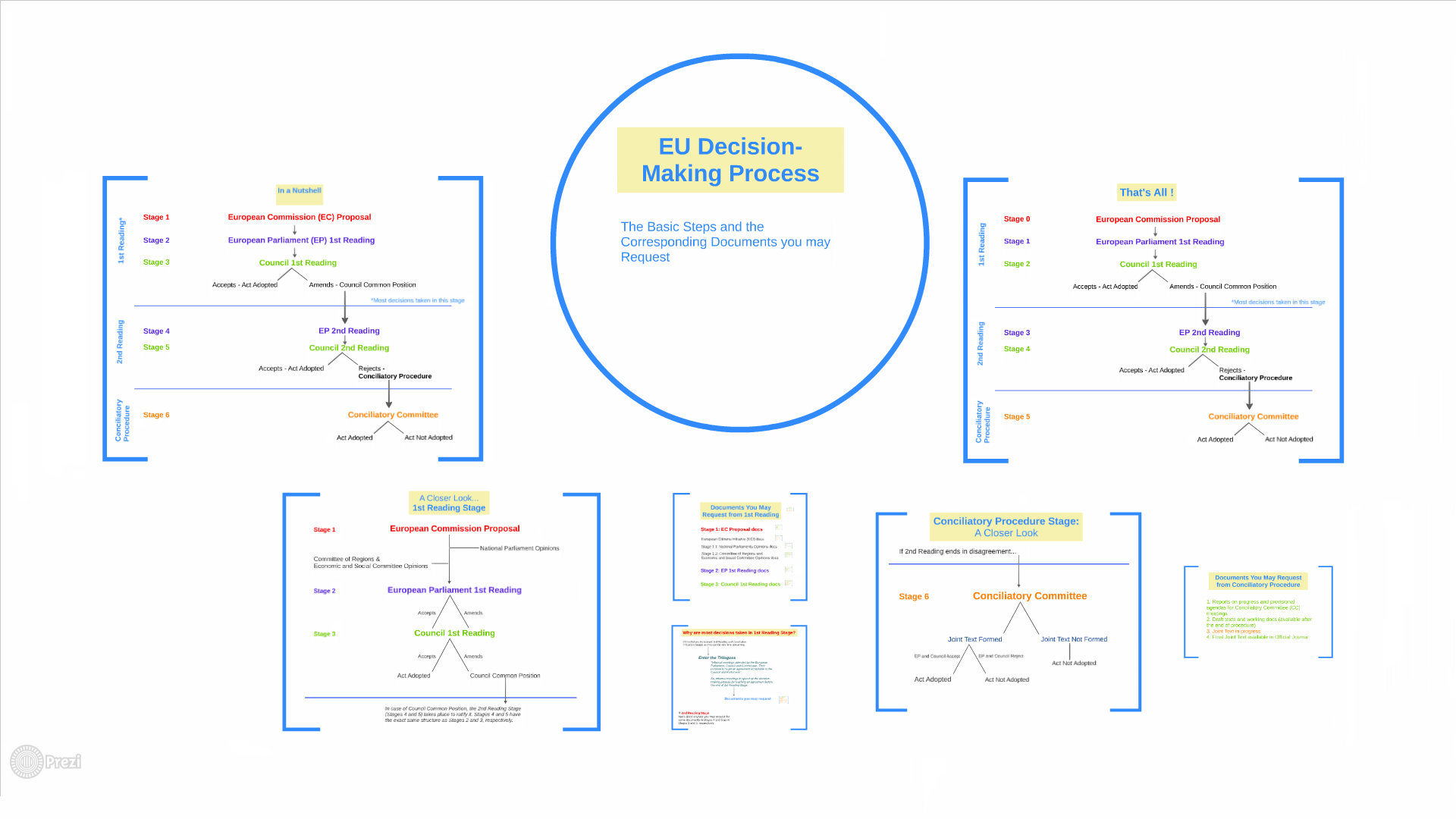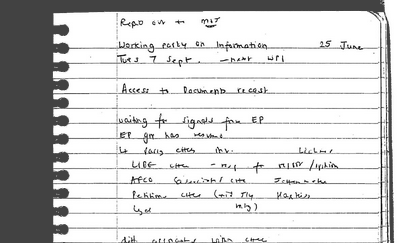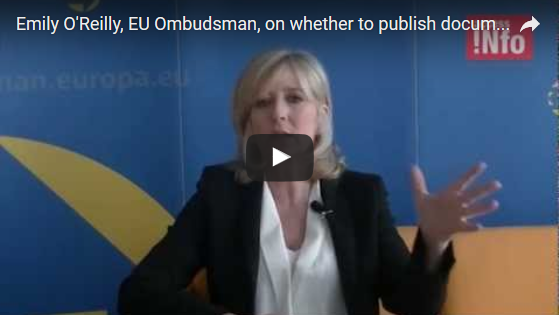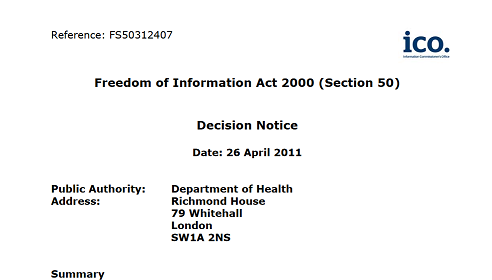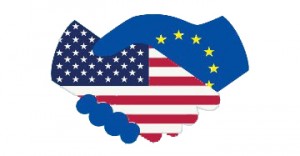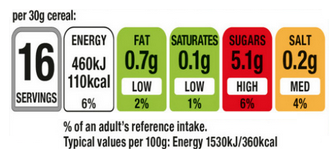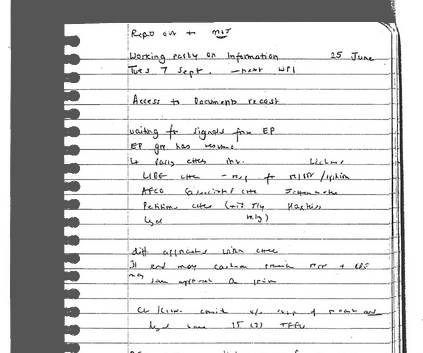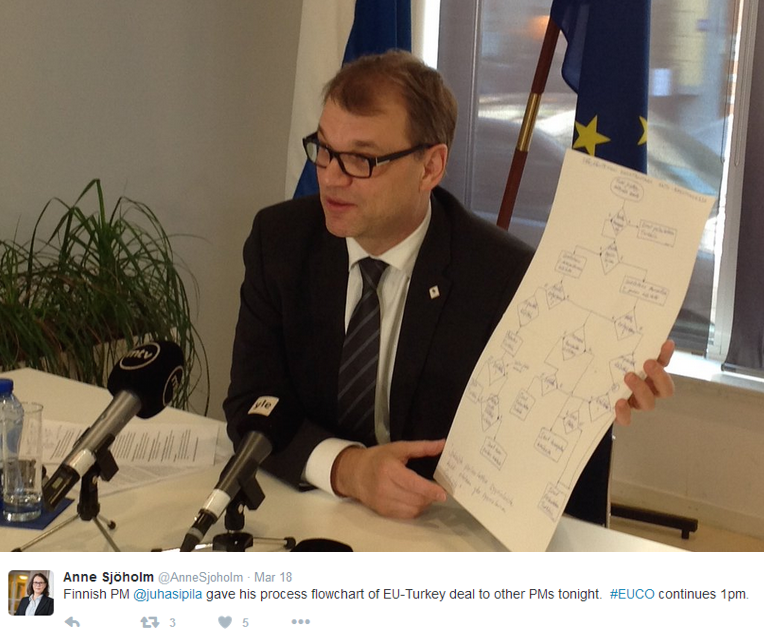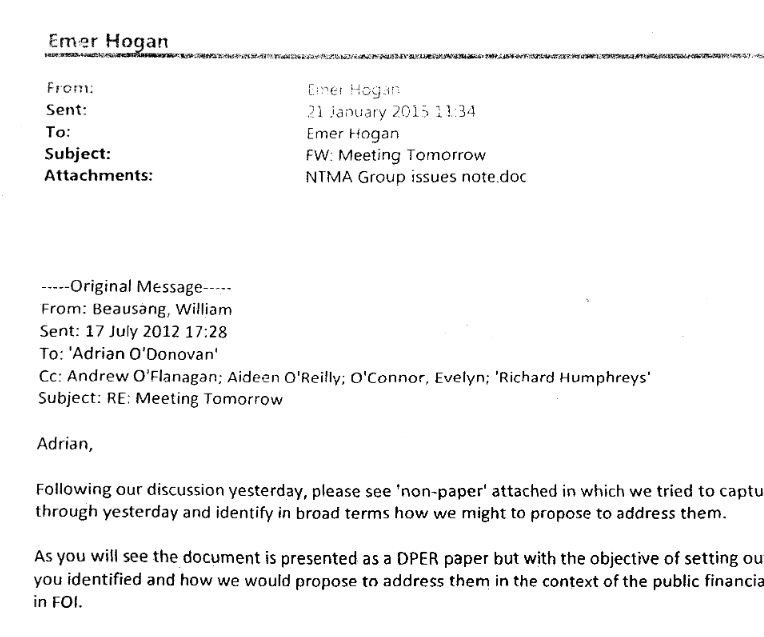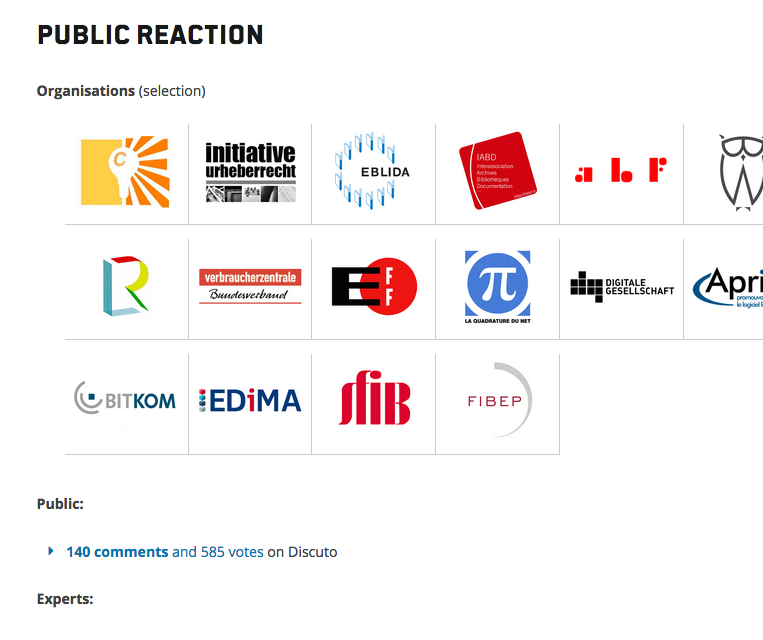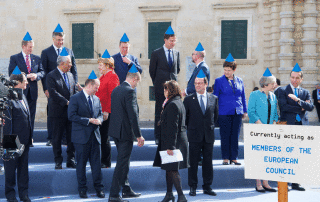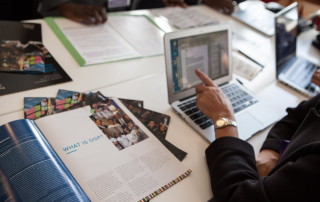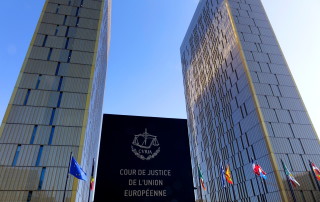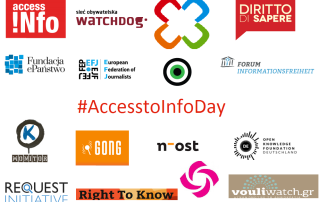OPENING UP DECISION MAKING
RESEARCH SHOWS THERE IS A SERIOUS LACK OF TRANSPARENCY WHEN TRYING TO KNOW HOW DECISIONS ARE TAKEN IN EUROPE
THIS IS WHAT WE FOUND, AND WHAT NEEDS TO BE DONE
ONLY 40% OF KEY DECISION-MAKING INFORMATION IS AVAILABLE IN EUROPEAN COUNTRIES
The map below explores the different obstacles we’ve encountered accessing information on decision-making processes in 12 European jurisdictions.
- Information available:
- 0-20%
- 21-40%
- 41-60%
- 61-80%
- 81-100%
THE FINDINGS: MAIN CHALLENGES FOR TRANSPARENCY
Europe's Access to Information laws permit requests for decision-making information
What we have found
However, an analysis of these 12 European laws has told us there is no obligation to record minutes of meetings held as part of decision-making processes.
Insufficient levels of proactive publication of information is impeding participation
What we have found
European countries are not proactively publishing who public officials meet, reasons justifying their decisions, nor records created regarding policy and legislation.
Information released through FOI requests is not enough to ensure accountability
What we have found
European countries are abusing the use of certain exceptions to deny access to documents, such as the protection of privacy when it comes to government and public officials.
RECOMMENDATIONS: TOWARDS OPEN DECISION MAKING
All public bodies which bear responsibility for decision making should fall under the scope of the access to information laws.
Public authorities have a duty to document information around decision-making processes that is essential to ensure public participation and scrutiny, as well as for the historical record.
Public authorities and representatives should be obliged to keep records and proactively publish information such as their agendas, minutes of meetings, third-party documents (submitted as part of or outside public consultations) and information justifying decisions taken.
Prompt responses to requests are essential to facilitate potential participation in decision-making processes. This also counts when responding to appeals.
Exceptions should always be applied narrowly and always taking into account any overriding public interest in full (or partial) disclosure of information.
“Decision-making transparency means to be able
to know how decisions are taken, by whom and why,
to be able to participate and hold our leaders accountable.
It is essential to our democracies.”
Helen Darbishire
Executive Director, Access Info Europe
CAMPAIGN MATERIALS: INTRODUCING
THE DECISION-MAKING TRANSPARENCY KIT!
If you are interested in knowing about a decision-making process, want to search for information, submit a request, or campaign for greater transparency of decision making, you might consider taking a look at the following materials!
CLICK ON THE IMAGES
OR SCROLL DOWN TO ACCESS
THE ALL OF THE CONTENT
DIRECTLY!
LOOKING FOR INFORMATION?
THESE ARE THE DOCUMENTS YOU CAN ASK FOR
Both at a national and at the EU level, certain documents are created during the decision-making process. These documents will give you an insight into how a decision was taken. We have created these two presentations explaining, at each phase of decision making, which documents are created, which are proactively published, and which may be requested.
AT NATIONAL/GENERAL LEVEL
AT EUROPEAN UNION LEVEL
CASE STUDIES: CAN WE KNOW HOW THE DECISION WAS TAKEN?
Aiming to contribute to an informed public debate around TTIP and its levels of transparency, we have investigated what information in regards to the negotiations is available, and what is not.
We analysed if interactions between the tobacco industry, EU institutions and national governments are conducted in compliance with transparency rules.
We looked into the legislative proposal to adopt a colour-coded food labelling system which classifies fats, sugars and salts, trying to discover the extent of the influence of lobbies.
WE ASKED EXPERTS AND OFFICIALS:
WHY IS IT SO IMPORTANT TO OPEN UP DECISION MAKING?
As part of our research we have spoken with the EU Ombudsman and other experts on the topic, to find out their views and understandings on the importance of transparency around decision making. Find all interviews on Access Info’s YouTube channel.
HELPFUL JURISPRUDENCE: LITIGATING FOR
ACCESS TO INFORMATION
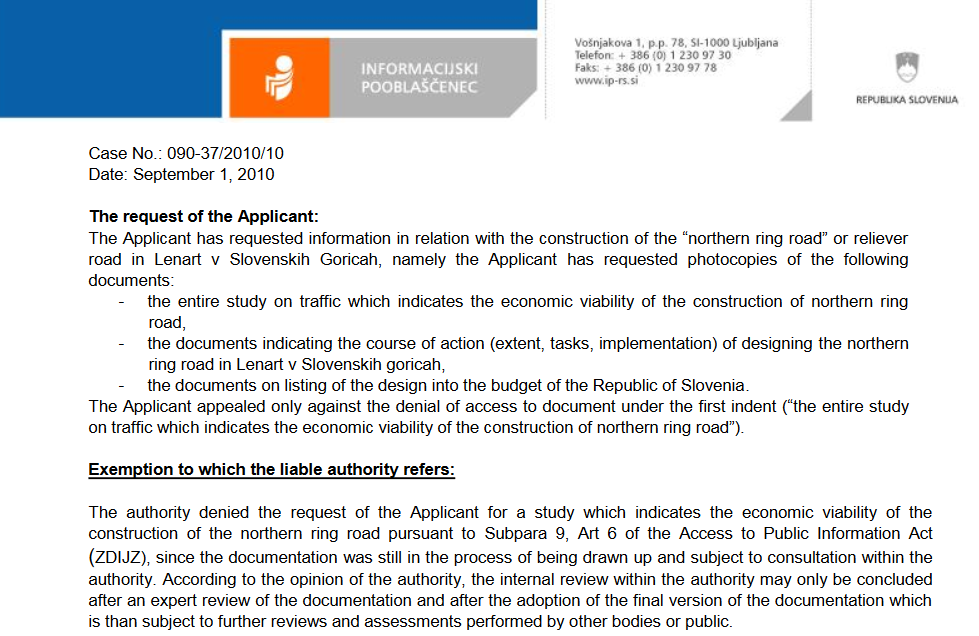
In order to help activists and civil society to push for greater transparency, and secure positive changes in transparency practices, we have collected and displayed the jurisprudence relating to the disclosure of documents.
You will find a series of cases from all across Europe which we hope will be useful in order to map what, where and why we can access key pieces of public information related to decision-making.
PARTNER ORGANISATIONS WORKING WITH US TO PROMOTE DECISION MAKING TRANSPARENCY:
OPEN DECISION MAKING LATEST NEWS
One year later: what we (still don’t) know about the EU-Turkey agreement and accountability
Madrid, 18 March 2017 - As I sat at the Access Info Europe offices on the 1st of March reading the latest Order of the General Court of the European Union, I could not help but shake my head every other minute in disbelief. In a case brought by an Afghan refugee threatened with expulsion from Greece against the European
Leave no trace? How to combat off the record government
[Article first published by Progressive Economy @ TASC] Dublin, 13 December 2016 - While historical archives are a rich part of our cultural heritage, there are many day-to-day reasons why we should care about how governments and public bodies currently make and keep records of their actions and decisions. At a very basic level, records and are vital for good
Access Info challenges European Commission secrecy around EU-Turkey refugee deal legal advice before the European Court of Justice
Madrid, 2 December 2016 – Access Info Europe is taking the European Commission to the General Court of the Court of Justice of the European Union to obtain its legal analysis of this year’s controversial EU-Turkey deal on return of refugees to Turkey. The 18 March 2016 deal – officially “statement” – which is having a direct impact in the
Europe: access to information in practice, not just on paper
[Article first published by the Osservatorio Balcani e Caucaso] Long established and widely recognized, the right to access to information is severely curtailed in many European countries due to deficient implementation of existing law In case you missed it, this year marks the 250th anniversary since the world’s first transparency law was adopted, in Sweden in 1766. At a quick
Statement by European RTI Community on the world’s First Official Access to Information Day!
Madrid, 28 September 2016 - On the first officially-recognised International Right to Know Day [1], European civil society groups working on the right of access to information today raised concerns that a lack of government transparency is damaging democratic processes, thereby facilitating rising mistrust and demagogic populism in Europe. Recent monitoring by civil society organisations has demonstrated that while significant
Record-keeping and timely publication of information are essential for meaningful participation Access Info tells Council of Europe
Madrid, 5 September 2016 – Access Info has submitted recommendations to the Council of Europe on how to improve its Draft guidelines for meaningful civil participation in political decision-making so as to ensure that records are kept and that there is timely publication of relevant documents. This recommendation comes after research across Europe by Access Info and partners revealed abysmal

